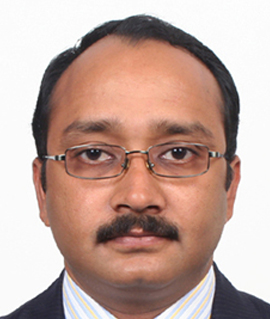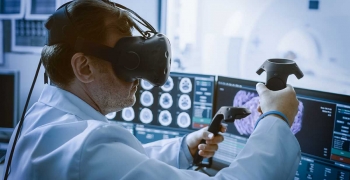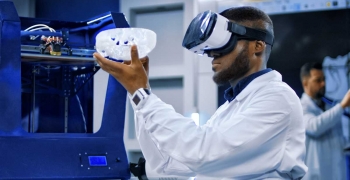Within the healthcare community, it is widely acknowledged that biomedical wastes have reached colossal levels across the world. Medical device manufacturers and hospitals' management have been compelled to increase awareness of the issue, step up waste management initiatives, and accelerate technological advancements in this space. These developments will take the global medical waste management market from $10.3 billion in 2015 to $13.3 billion by 2020 at a compound annual growth rate of 5.2%. Worldwide, almost all countries are directing efforts towards efficient methods of biomedical waste management, with a particular focus on hazardous waste management.
With the EPA imposing tighter regulations in the US, the number of hospital, medical, and infectious waste incinerators (HMIWI) have reduced drastically since 1997. In accordance to the new guidelines, medical care professionals are no longer allowed to dispose certain pharmaceuticals that are potentially reactive, toxic, corrosive, or ignitable.
Yet, developed countries, where disposable items are most commonly used, produce the maximum amount of waste. US hospitals discard over two million tons of waste per year, of which completely unused equipment comprises a large fraction. It is needless to say that this does nothing to keep down the exorbitant healthcare costs in the country.
The challenges pertaining to medical waste disposal in developing countries however are different. Stemming largely from a severe lack of funding and regulations, a majority of African countries do not have sanitary landfills or legal policies for biomedical waste management. Open areas where waste is dumped have therefore become breeding grounds for disease and contagion. A large number of under-operated incinerators have been found, and only a scant number of hospitals have separate pits designated for the disposal of sharp items.
This problem is further exacerbated when, for example, over 50 percent of hospitals in the US recycle and donate single-use items to developing countries. Medical device reprocessors sterilize and sell these at relatively lower prices.
Besides conventional technologies being deployed across geographies, many companies are also focusing on alternatives such as microwave technologies, autoclaving, electro-pyrolysis, and chemical mechanical systems. These treatments ensure medical wastes are non-infectious, so that they can be disposed in incinerators or landfills as regular solid waste. Take the case of California-based hazardous waste management firm that is already taking steps in this direction. In a bid to reach their sustainability goals, the company plans to treat medical waste in microwave disinfection systems, which decreases the waste volume by 80%, thereby saving landfill space and reducing transport costs. Moreover, certain regulated waste types can be used as feed stock for waste-to-energy facilities or discarded in landfills as non-regulated solid waste.
As for developing nations, municipalities and waste management companies are increasingly adopting smart management methods to handle their operations ranging from waste collection to disposal. These include technologies such as radio frequency identification (RFID), global positioning systems-enabled routing, fuel switching, and pneumatic tubes. Mechanical and biological treatments, together with advanced recovery and refuse-driven fuel production facilities, are also gaining buy-in. In India, bioremediation has been a popular, cost-effective choice for many enterprises. Vilappilsala’s civic bodies implemented this technology in an effort to minimize a mountainous heap of garbage coming from a waste plant and comply with regulations imposed by the National Green Tribunal (NGT). This resulted in reducing the 70-feet high landfill to half and 12 leachate pools to two.
To counter the inflow of recycled, single-use medical devices, certain developed nations’ regulatory bodies are now making reprocessors liable for any adverse events caused by the device. The Food and Drug Administration (FDA) is taking a more scientific approach by outlining guidelines for adequate disinfection, cleaning, and sterilization processes. This will not only help keep healthcare costs in check but also ensure that such medical devices are effectively reprocessed and cleared for use in healthcare facilities.
Although incineration technologies are widely accepted across developed and developing nations, bioremediation promises to diminish the environmental impact associated with these processes. Professor Elizabeth Edwards and her team at the University of Toronto have received funding from several waste management corporations to help develop bioaugmentation solutions. These focus on using a special culture of microbes to breakdown pollutants with minimal environmental disruption.
There is a long way to go before this solution is widely adopted. At present, it is labor-intensive and time-consuming when compared to other remediation techniques. Moreover, the range of contaminants that can be effectively disposed of is limited to only biodegradable materials.
In support of worldwide sustainability goals, innovation in the field of biomedical waste management will be fueled by increasing regulatory pressure. For developing nations, this entails embracing social responsibility as a foundation for ethical disposal, before moving on to a technologically-enabled framework.




